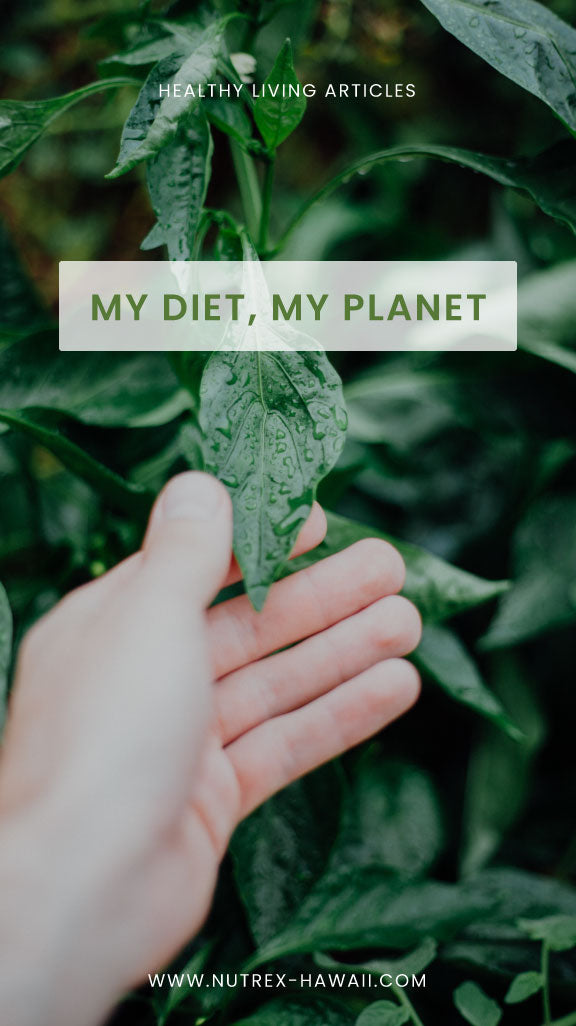You do not have to be a vegan or vegetarian to help our planet. Excess meat is not the greatest thing for your health and our planet, in fact, it’s pretty darn bad. A few simple changes like decreasing meat and dairy consumption can make a big difference – Here’s why:
Reducing consumption of meat can help contain production of greenhouse gases that impact climate change. It can also help lessen the demand for precious environmental resources such as land, water, and energy.
Shocking Facts:
- Livestock production creates more greenhouse gases than the entire transportation sector–all the cars, trucks, planes, and trains in the world
- Livestock production uses 75% of the earth’s agricultural land
- Producing ONE quarter-pound beef burger uses 425 gallons of water–enough water to fill 10 bathtubs
- Producing ONE quarter-pound beef burger uses up enough energy to power an iPhone for 6 months 1.
If you eat meat, there are ways that you can still improve your health and that of the earth. Ever heard of Meatless Monday? Skipping one serving of beef every Monday for a year saves the equivalent emissions to driving 348 miles in a car. It’s better for the planet and your health!
In general, red meats have more saturated fat than chicken, fish and vegetable proteins such as beans. Saturated and trans fats can raise your blood cholesterol and make heart disease worse 2. Cutting back on meat can even help you lose weight. Eating less meat may be the key to keeping a healthy weight, say researchers. A European study of almost 400,000 adults found that eating meat was linked with weight gain, even in people taking in the same number of calories 3.
Now that your feeling awesome about your Meatless Monday’s how about adding a No Dairy Day? Milk and other dairy products are the top source of saturated fat in the American diet, contributing to heart disease, type 2 diabetes, and Alzheimer's disease. Studies have also linked dairy to an increased risk of breast, ovarian, and prostate cancers 4.
Dairy cows and their manure produce greenhouse gas emissions which contribute to climate change. Poor handling of manure and fertilizers can degrade local water resources. And unsustainable dairy farming and feed production can lead to the loss of ecologically important areas, such as prairies, wetlands, and forests 5. If you’re absolutely craving milk on your No Dairy Day, there are many milk alternatives out there! Almond milk, rice milk, coconut milk, hemp milk, cashew milk and soy milk. Soy milk has been the most popular non-dairy substitute for decades because its nutrition profile closely resembles that of cow's milk 6.
An easy way to add more green food into your diet is to include superfood Hawaiian Spirulina! Spirulina is one of the oldest life forms on Earth.
Spirulina has between 55 and 70% protein (more than beef, chicken, and soybeans), 9 essential and 10 non-essential amino acids, as well as gamma-linolenic acid (GLA), beta-carotene, linoleic acid, arachidonic acid, vitamin B12, iron, calcium, phosphorus, nucleic acids RNA & DNA, chlorophyll, and phycocyanin, a pigment-protein complex that is found only in blue-green algae.
Spirulina provides people with long lasting energy and strengthens the immune system*. Its antioxidant power contributes to the entire body operating in optimal condition; it enables children and others who don’t like vegetables to still “eat their greens” and it helps busy people who don’t have time for regular, balanced meals to maintain their nutrition.
By consuming less meat and dairy and adding in green foods like Hawaiian Spirulina you can feel good about your nutrition plan and our planet!
*These statements have not been evaluated by the Food and Drug Administration. This product is not intended to diagnose, treat, cure, or prevent any disease.
References:
1 - https://www.mondaycampaigns.org/meatless-monday/benefits
2 - https://www.heart.org/en/healthy-living/healthy-eating/eat-smart/nutrition-basics/meat-poultry-and-fish-picking-healthy-proteins
3 - https://www.bbc.com/news/health-10726414
4 - https://www.pcrm.org/good-nutrition/nutrition-information/health-concerns-about-dairy
5 - https://www.worldwildlife.org/industries/dairy
6 - https://www.roswellpark.org/cancertalk/201707/what-best-alternative-milk

